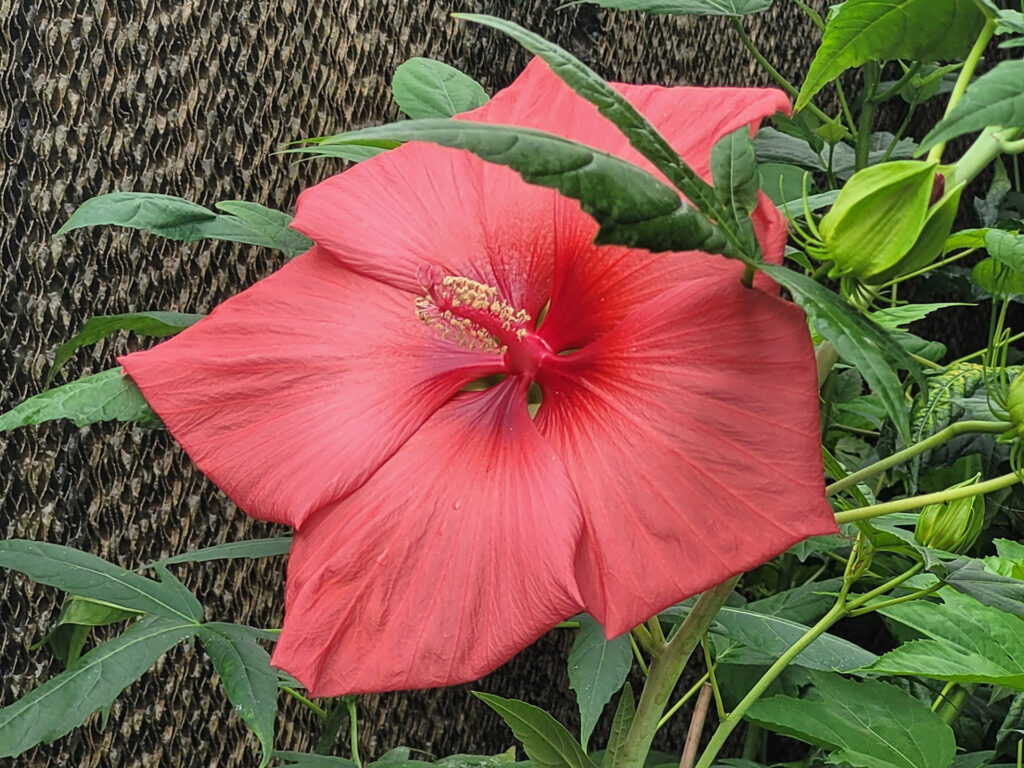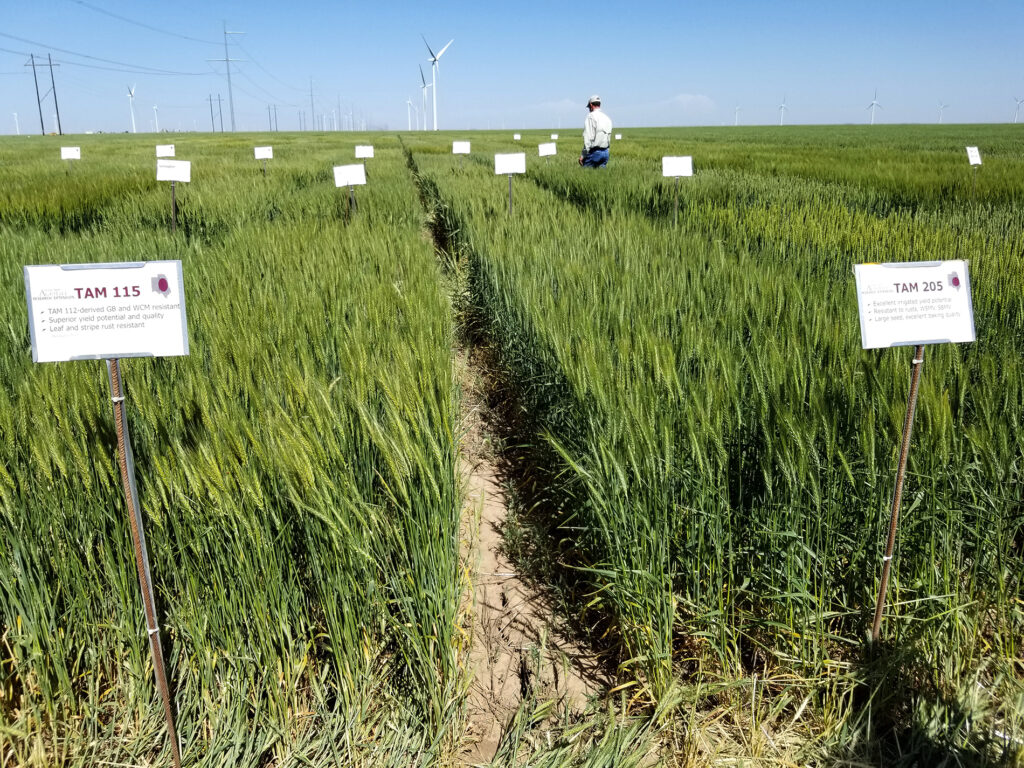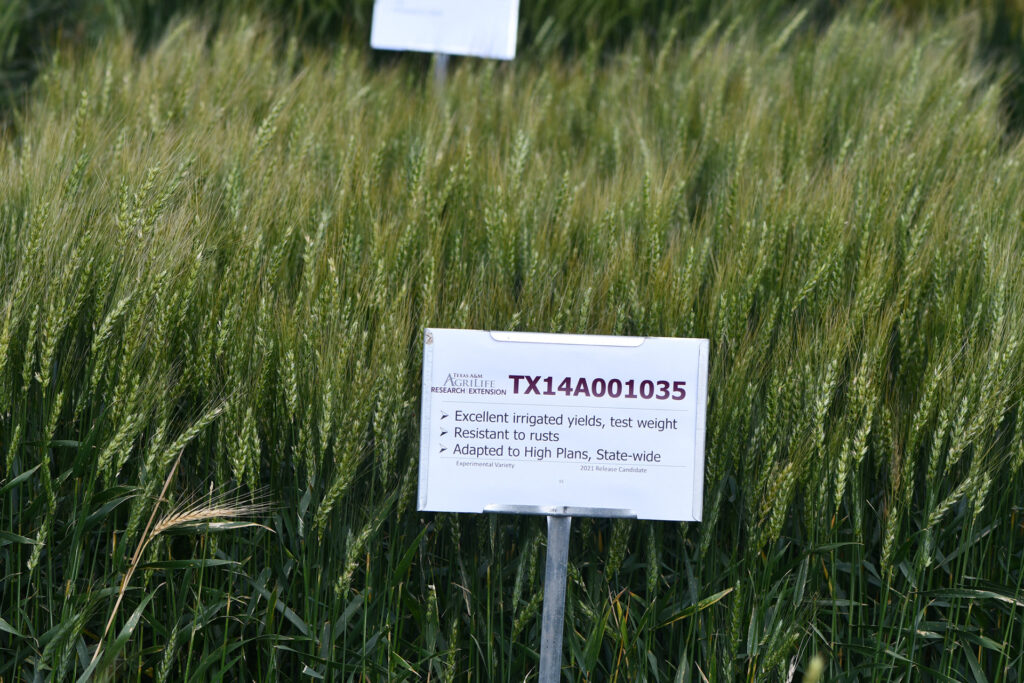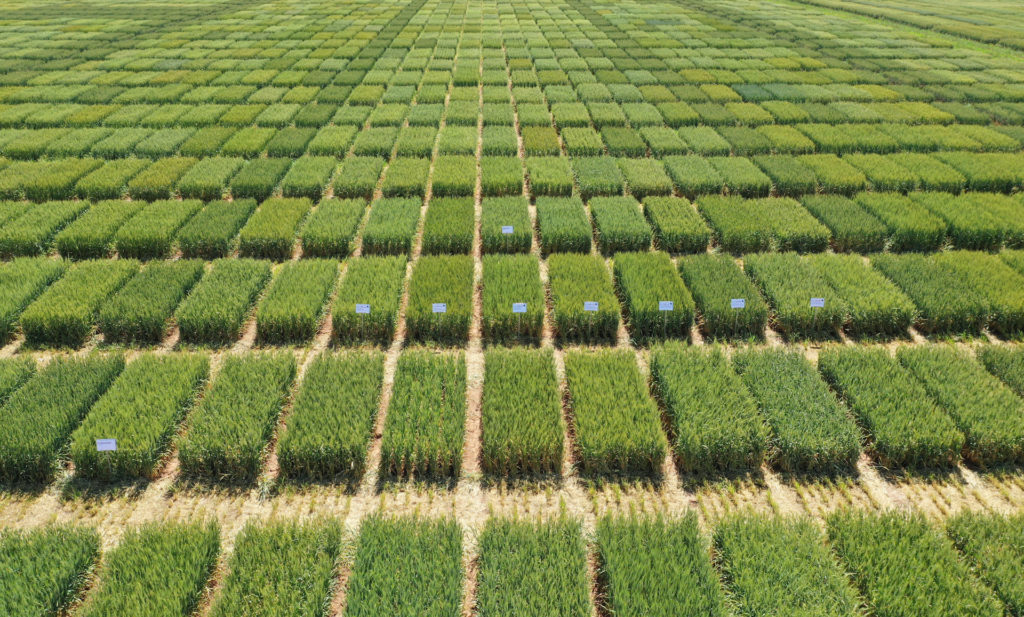The 11th annual Red River Crops Conference for producers in southwestern Oklahoma and the Texas Rolling Plains regions will be held on Jan. 17-18 in Altus, Oklahoma. The Texas A&M AgriLife Extension Service and the Oklahoma Cooperative Extension Service collaborate each year to offer the event, alternating hosting duties between the two states.
Category: News
Crossing a new frontier in hardy hibiscus breeding
Novel coral-flowering hibiscus hybrid developed by Texas A&M AgriLife Research breeder
After the breakthrough achievements of creating blue and maroon flower colors in hardy hibiscus, Texas A&M AgriLife plant physiologist and breeder Dariusz Malinowski, Ph.D., has now developed the first-ever coral-colored hibiscus.
The coral-colored hibiscus is the latest creation from what started as a hobby for Malinowski in 2005 and has grown to the point that Vernon is now considered the Hibiscus Capitol of Texas.

Wheat ‘Picks’ highlight top-performing varieties by Texas A&M AgriLife
Variety selection key to managing potential growing-season risks
As producers try to put the weather-plagued 2022-2023 wheat crop behind them and prepare for the next season, Texas A&M AgriLife agronomists from the High Plains and Rolling Plains are releasing their annual list of top-performing wheat varieties.
The Texas A&M AgriLife Extension Service and Texas A&M AgriLife Research annual “Top Wheat Picks” list for top-performing varieties is based on a three-year running average and not a single year, taking into account the harsh drought conditions of the past two years.

Texas A&M AgriLife’s public breeding program releases new wheat, triticale varieties
Increase in seed production from Texas A&M AgriLife Foundation Seed to potentially reach farmers in 2024
Two new wheat varieties and a new triticale variety are headed to farmers in the fall of 2024, according to an announcement by Texas A&M AgriLife and the Texas A&M Wheat Improvement Program.
Texas A&M AgriLife Research wheat breeders Jackie Rudd, Ph.D., in Amarillo and Amir Ibrahim, Ph.D., in Bryan-College Station, both within the Texas A&M College of Agriculture and Life Sciences Department of Soil and Crop Sciences, made the announcement at the recent small grains field day at the research plots near Bushland.
The wheat breeders put their experimental lines through observation trials and 20 elite line breeder trials before planting them in uniform variety trials at 30 locations across the state to test the genetics by environment.

Texas A&M AgriLife to lead historic investment in Texas’ efforts to become ‘climate-smart’
Texas A&M AgriLife Research receives largest competitive grant in its history
Texas A&M AgriLife Research is anticipating the largest competitive grant in the organization’s history, up to $65 million, to execute a five-year multi-commodity project to work with Texas’ large agricultural sector on expanding climate-smart agriculture and forestry practices.
The grants are not just historic for The Texas A&M University System, but for the nation, as part of a federal investment in 70 partnerships recently announced by the U.S. Department of Agriculture.
Texas peanut production below average, prices strong
Texas Crop and Weather Report – Sept. 13, 2022
Texas peanut producers experienced tough growing conditions in 2022, according to Texas A&M AgriLife Extension Service experts.
Yields were expected to be below average, but prices were stronger this season. Peanuts were impacted by drought and heat much like most crops across the state, said Emi Kimura, Ph.D., AgriLife Extension state peanut specialist, Vernon.
Texas peanut production is reliant on supplemental irrigation, and water capacities vary from operation to operation. Kimura said low soil moisture, low humidity, extreme heat and windy conditions made it difficult for irrigation to meet crop demand.
Texas A&M AgriLife offers wheat ‘Picks’ as planting time arrives
Tough 2022 resulting in short wheat seed supplies
Persistent drought conditions and forage shortages as well as strong prices for wheat silage and wheat hay have resulted in a large percentage of Texas wheat acres either failing, being chopped or being hayed this year.
Overall, Texas wheat production was down 49% from the previous year because of failed acres and reduced yields.

Corn varieties getting some help from their relatives
Using some traits from native and wild plants, Texas A&M AgriLife researchers are combining corn breeding and entomology expertise to tackle some of U.S. corn production’s major issues.
The two-year project, funded by the U.S. Department of Agriculture National Institute of Food and Agriculture Crop Protection and Pest Management Competitive Grants Program, is designed to address current challenges such as increased pest resistance, decreased efficacy of Bt technology, vulnerability to caterpillar pests such as fall armyworm, and preharvest mycotoxin contamination.
Tepary beans offer producers a low-input, climate-resilient legume alternative
Tepary beans are among the most drought-tolerant legume crops in the world, but at one time, they were almost an endangered species in the U.S.
Waltram Ravelombola, Ph.D., a Texas A&M AgriLife Research organic and specialty crop breeder at Vernon and in the Texas A&M Department of Soil and Crop Sciences, is one of a few scientists funded by a U.S. Department of Agriculture Agricultural Research Service grant to bring tepary beans into modern cropping systems and diets.
‘Diesel nut’ development brings Texas A&M AgriLife, Chevron together
Collaboration will utilize peanuts to potentially develop feedstock for lower-carbon fuel production
Peanut oil powered the world’s first diesel engine when it was premiered by Rudolf Diesel at the World Exposition in Paris in 1900. Now, a collaboration between Chevron and Texas A&M AgriLife is reviving the use of peanuts as a renewable feedstock for diesel fuel with a lower carbon intensity.

